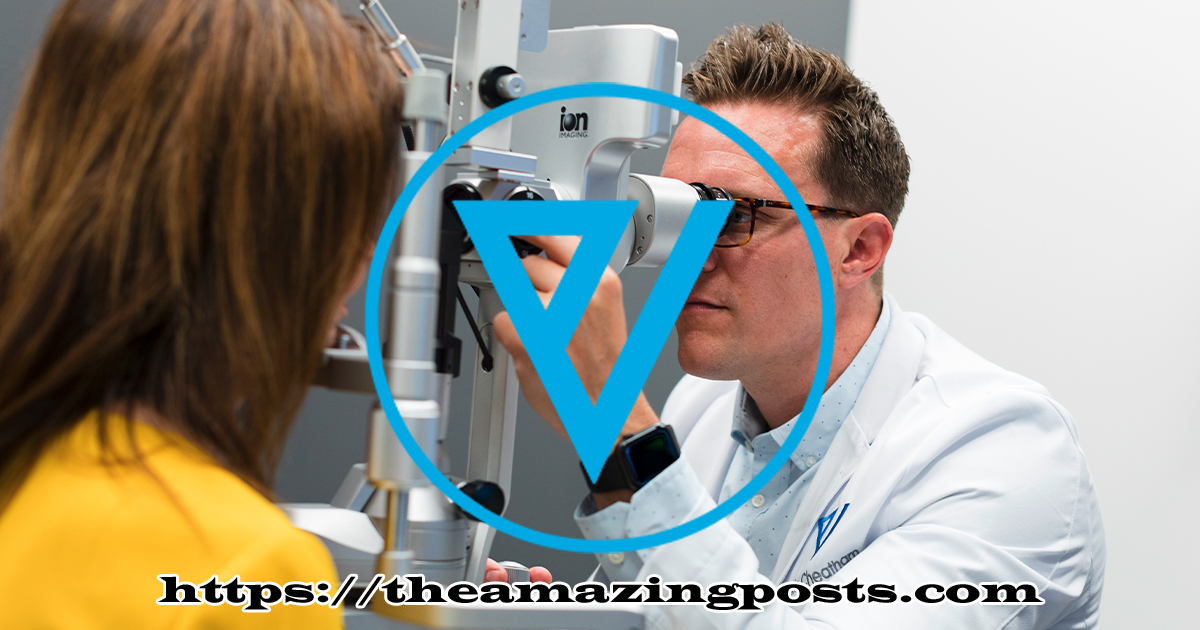In the hustle and bustle of everyday life, it’s easy to overlook the importance of regular eye check-ups. However, maintaining good eye health is essential for overall well-being. Whether you’re experiencing vision issues or simply due for a routine examination, finding the right Eye Doctor Near ME is a crucial step towards safeguarding your vision.
With numerous options available, selecting an eye care professional can feel overwhelming. Here’s a guide to help you navigate the process and locate the perfect eye doctor in your area.
Understanding Eye Care Professionals:
Before beginning your search, it’s beneficial to understand the different types of eye care professionals and their specialties:
- Optometrists: Optometrists are primary eye care providers who specialize in conducting eye exams, diagnosing vision problems, and prescribing glasses or contact lenses. They also treat certain eye conditions and diseases, such as dry eye or glaucoma.
- Ophthalmologists: Ophthalmologists are medical doctors (MDs) or doctors of osteopathic medicine (DOs) who specialize in eye and vision care. In addition to performing eye exams and prescribing corrective lenses, they are qualified to diagnose and treat more complex eye conditions, perform surgery, and provide medical care for eye diseases.
- Opticians: Opticians are technicians trained to design, verify, and fit eyeglass lenses and frames, contact lenses, and other vision-correcting devices. While they don’t diagnose or treat eye conditions, they play a crucial role in ensuring that your prescription lenses meet your visual needs.
Factors to Consider When Choosing an Eye Doctor Near ME
When selecting an eye doctor, several factors should influence your decision:
- Credentials and Experience: Look for licensed and board-certified eye care professionals with a strong track record of expertise and patient satisfaction.
- Services Offered: Consider the range of services provided by the eye doctor, including comprehensive eye exams, treatment of eye diseases, surgical procedures, and options for corrective eyewear.
- Convenience and Location: Opt for a clinic or practice that is conveniently located and easily accessible from your home or workplace, making it simpler to schedule appointments and attend follow-up visits.
- Insurance Coverage: Check whether the eye doctor accepts your insurance plan to minimize out-of-pocket expenses for eye care services.
- Patient Reviews and Recommendations: Read online reviews and seek recommendations from family, friends, or healthcare professionals to gauge the quality of care provided by the eye doctor.
Utilizing Online Resources:
The internet is a valuable tool for researching eye doctors in your area. Websites and online directories dedicated to healthcare services allow you to explore different eye care providers, read patient reviews, and compare qualifications and services offered. Additionally, many practices have their websites where you can find detailed information about the doctors, staff, and the range of services available.

Scheduling Your Appointment:
Once you’ve identified potential eye doctors, contact the practice to schedule an appointment. During your initial visit, communicate any specific concerns or symptoms you’re experiencing, and be prepared to discuss your medical history, current medications, and lifestyle factors that may impact your eye health.
Conclusion:
Regular eye exams are essential for maintaining optimal vision and detecting potential eye problems early on. By selecting the right eye doctor near you, you can ensure personalized care and expert guidance tailored to your unique needs. Take the time to research and choose a trusted eye care professional who will partner with you in preserving the gift of sight for years to come.
Common FAQs
1. How often should I visit an eye doctor for a check-up?
- It is recommended to have a comprehensive eye exam at least once every two years for adults under 60, and annually for those over 60. However, individuals with certain risk factors or pre-existing eye conditions may need more frequent exams as advised by their eye doctor.
2. How do I know if I need to see an optometrist or an ophthalmologist?
- Optometrists primarily provide routine eye care services, such as eye exams and prescribing glasses or contact lenses. Ophthalmologists are medical doctors who specialize in eye care, including diagnosing and treating eye diseases, performing surgeries, and providing medical care. Your choice may depend on your specific eye health needs.
3. Can I schedule an eye exam online?
- Many eye care practices offer online appointment scheduling through their websites or third-party platforms. Check the practice’s website or call their office to inquire about online scheduling options.
4. What should I bring to my eye exam appointment?
- It’s helpful to bring your current glasses or contact lenses, a list of any medications you’re taking, your medical history (including any eye conditions or surgeries), and your insurance information. If you’re a new patient, arrive a few minutes early to fill out any necessary paperwork.
5. Will my insurance cover the cost of the eye exam and any necessary treatments?
- Coverage varies depending on your insurance plan and the specific services needed. Contact your insurance provider to understand your coverage details, including any copayments or deductibles. Many eye care practices accept a variety of insurance plans and can help you navigate the billing process.
6. What if I have an emergency eye issue outside of regular business hours?
- If you experience a sudden vision loss, eye injury, or other urgent eye problem outside of normal business hours, seek immediate medical attention. Many hospitals have emergency departments equipped to handle eye emergencies, or you can contact an on-call ophthalmologist for guidance.
7. Can I get my prescription glasses or contact lenses from the same eye doctor who performed my exam?
- Yes, many eye care practices offer a selection of eyewear options, including prescription glasses and contact lenses. Your eye doctor can help you choose the right lenses and frames based on your prescription and lifestyle preferences.
8. How long does an eye exam typically take?
- The duration of an eye exam can vary depending on the complexity of your eye health and the specific tests performed. A comprehensive eye exam usually takes around 30 to 60 minutes, but it may be longer if additional testing or discussion is needed.
9. What should I do if I notice changes in my vision between regular eye exams?
- If you experience sudden or significant changes in your vision, such as blurry vision, double vision, eye pain, or flashes of light, schedule an appointment with your eye doctor as soon as possible. Prompt evaluation and treatment can help address any underlying issues and prevent further vision loss.
10. How can I maintain good eye health between eye exams?
- To promote healthy vision, practice good eye hygiene, eat a balanced diet rich in fruits and vegetables, protect your eyes from harmful UV rays by wearing sunglasses outdoors, and take regular breaks when using digital devices for extended periods. If you have specific concerns or risk factors, discuss preventive measures with your eye doctor during your exam.



















[…] […]
[…] these pressure points stimulate nerve endings and improve circulation, leading to better overall health. It’s particularly effective in relieving stress and tension, improving sleep, and boosting […]